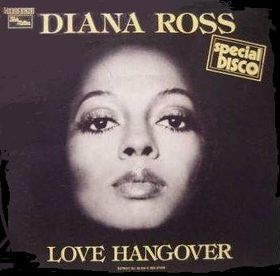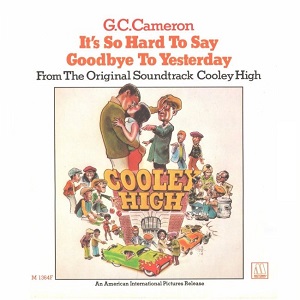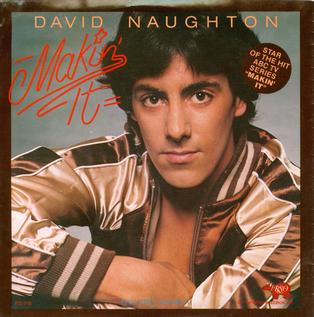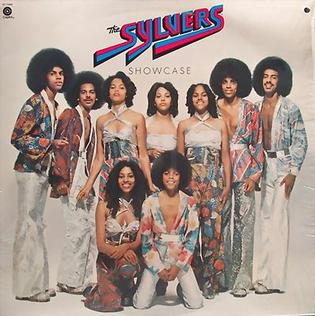
"I Will Survive" is a song recorded by American singer Gloria Gaynor, released in October 1978 by Polydor Records as the second single from her sixth album, Love Tracks (1978). It was written by Freddie Perren and Dino Fekaris. The song's lyrics describe the narrator's discovery of personal strength following an initially devastating breakup. The song is frequently regarded as an anthem of female empowerment, as well as a disco staple.

The Sylvers were an American R&B family vocal group from Watts, Los Angeles, California. They were active during the 1970s, recording the singles "Fool's Paradise", "Boogie Fever", and "Hot Line". Prior to becoming the Sylvers, the four eldest members recorded as the Little Angels, appearing on shows such as You Bet Your Life and Make Room for Daddy, and opening for acts such as Johnny Mathis and Ray Charles. During this time, they released two singles: "Santa Claus Parade" b/w "I'll Be a Little Angel" on Warwick Records and "Says You" b/w "Olympia" on Capitol Records.
Frederick James Perren was an American songwriter, record producer, arranger, and orchestra conductor. He co-wrote and co-produced songs including "Boogie Fever" by the Sylvers, "I Will Survive" by Gloria Gaynor, and "Shake Your Groove Thing" by Peaches & Herb.

"ABC" is a song by American pop band the Jackson 5. It was released as a single in 1970. The song replaced the Beatles' "Let It Be" on the number-one spot of the Billboard Hot 100 chart in 1970, and was number one on the soul singles chart for four weeks. It is the title track to the group's second album and sold 2 million copies within the first week of its release in the US and more than 4 million copies worldwide.

"The Love You Save" is a song recorded by the Jackson 5 for Motown Records. It was released as a single on May 13, 1970, and held the number-one spot on the soul singles chart in the US for six weeks and the number-one position on the Billboard Hot 100 singles chart for two weeks, from June 27 to July 4, 1970 and sold over 2 million copies in the United States. In the UK top 40 chart, it peaked at number 7 in August 1970. The song is the third of the four-in-a-row Jackson 5 number-ones released. Billboard ranked the record as the No. 16 song of 1970, one place behind the Jackson 5's "ABC".

"Love Hangover" is a song by the American singer Diana Ross, recorded in 1975 and released as a single on March 16, 1976. It rose to number one on the Billboard Hot 100 and Hot-Selling Soul Singles. It also hit number one on the Record World disco charts.
Claudja Barry is a Jamaican-born Canadian singer. Her successful songs were "Down and Counting", "Boogie Woogie Dancin' Shoes", "Dancing Fever", and others. As an actress, she is known for appearing in the European versions of stage musicals AC/DC and Catch My Soul.

"Shop Around" is a song originally recorded by the Miracles on Motown Records' Tamla subsidiary label. It was written by Miracles lead singer Smokey Robinson and Motown Records founder Berry Gordy. It became a smash hit in 1960 when originally recorded by the Miracles, reaching number one on the Billboard R&B chart, number one on the Cashbox Top 100 Pop Chart, and number two on the Billboard Hot 100 chart. It was the Miracles' first million-selling hit record, and the first-million-selling hit for the Motown Record Corporation.

"You Should Be Dancing" is a song by the Bee Gees, from the album Children of the World, released in 1976. It hit No. 1 for one week on the American Billboard Hot 100, No. 1 for seven weeks on the US Hot Dance Club Play chart, and in September the same year, reached No. 5 on the UK Singles Chart. The song also peaked at No. 4 on the Billboard Soul chart. It was this song that first launched the Bee Gees into disco. It was also the only track from the group to top the dance chart.
"If I Can't Have You" is a disco song written by the Bee Gees in 1977. The song initially appeared on the Saturday Night Fever soundtrack in a version by Yvonne Elliman, released in November 1977. The Bee Gees' own version appeared a month later as the B-side of "Stayin' Alive".

"Disco Lady" is a 1976 single by American singer Johnnie Taylor that went on to become his biggest hit. It spent all four weeks of April 1976 at No. 1 on the Billboard Hot 100 and six weeks atop the Billboard R&B chart in the U.S. It was also the first single to be certified platinum by the RIAA; ultimately it sold over 2.5 million copies. Billboard ranked it as the No. 3 song for 1976; Cash Box had it the year's No. 1 song

"It's So Hard to Say Goodbye to Yesterday" is an R&B song written by Motown husband-and-wife songwriting team Freddie Perren and Christine Yarian for the 1975 film Cooley High. In the film, the song is performed by Motown artist G.C. Cameron, whose rendition peaked at number 38 on the Billboard R&B singles chart that same year. Perren also composed the instrumental score for Cooley High, and the B-side to "It's So Hard to Say Goodbye to Yesterday" features two of his score compositions from the film.

"Makin' It" is a 1979 disco song performed by David Naughton, his only musical release. It was the theme song for the television series Makin' It, in which Naughton starred. It was written by the successful songwriting team Freddie Perren and Dino Fekaris. It was released as both a 7-inch single and a 12-inch single, with an instrumental version of the song titled "Still Makin' It" as the B-side.

"Love Machine" is a 1975 single recorded by Motown group the Miracles, taken from their album City of Angels. The song was a number-one hit on the Billboard Hot 100, and the biggest-selling hit single of the Miracles' career. This single was one of two Billboard Hot 100 top-20 hits recorded by The Miracles with Billy Griffin as lead vocalist; the other is 1973's "Do It Baby". Griffin had replaced Miracles founder Smokey Robinson as lead singer in 1972. The song features a growling vocal by Miracle Bobby Rogers, with group baritone Ronnie White repeating "yeah, baby" throughout the song.

"I'm Gonna Let My Heart Do the Walking" is a disco-styled soul single composed by the Holland brothers Eddie and Brian, members of the former Holland–Dozier–Holland team and was released as a single by Motown vocal group The Supremes in 1976 on the Motown label. It was the first single since "Your Heart Belongs to Me" in 1962 to feature four Supremes. It is also notable for being the last top forty single the group would score before they disbanded in 1977.

"Do It Baby" is a 1974 single recorded and released by the Motown R&B group The Miracles. The song was taken from the album of the same name, and written by Motown staff songwriters Freddie Perren and Christine Yarian and produced by Perren.

Showcase is the fourth album by the Los Angeles, California-based R&B group the Sylvers.

Something Special is the fifth album by the Los Angeles, California-based R&B group the Sylvers.

"Hot Line" is a song recorded by American family group the Sylvers, from their 1976 album Something Special. It was written by Freddie Perren and Kenneth St. Lewis. It became an international Top 10 hit, and is a gold record.

"Get Up and Boogie" is a song by German disco act Silver Convention from their 1976 second album of the same name. The song was written and composed by Sylvester Levay and Stephan Prager, and produced by Prager. The song was released as the lead single from the album Get Up and Boogie in 1976.
















